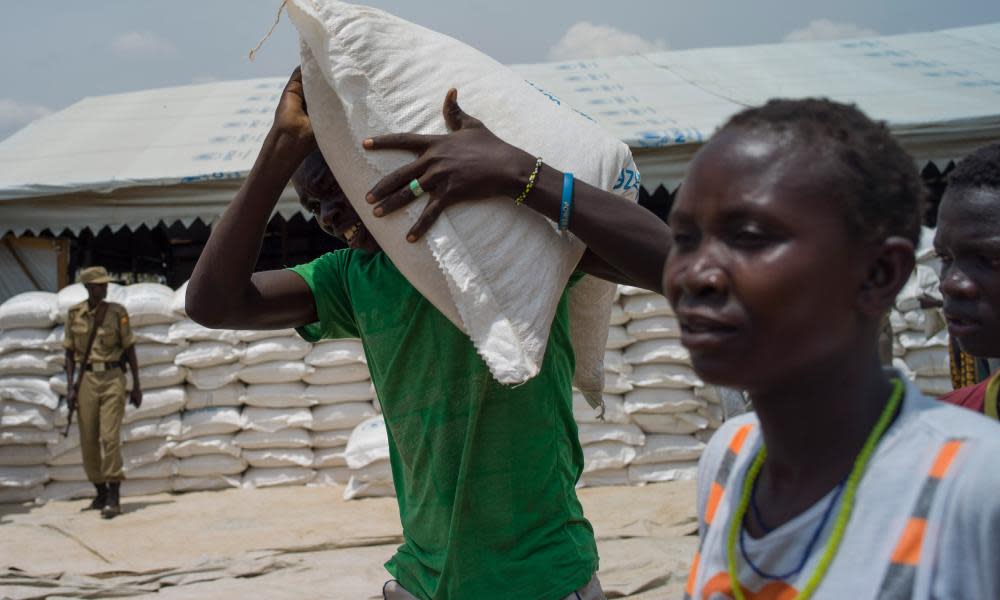UK's £100m response to South Sudan famine comes from cash already allocated

The British government is facing questions after announcing it was responding to the declaration of famine in South Sudan by allocating £100m of new money that had, in reality, already been reserved for the stricken country.
On Wednesday, the UK’s Department for International Development (DfID) released a statement trumpeting what it described as “new humanitarian support” for South Sudan.
Humanitarian workers in South Sudan interpreted the announcement to mean that extra funds were on the way to supplement cash already budgeted for 2017-18, from which they had been working before famine was declared on Monday.
However, it has since emerged that no new money is being made available. DfID initially briefed that the announcement related to a fresh pot of money, but a spokesperson later clarified that the £100m had already been allocated to South Sudan.
The SNP’s international development spokesperson, Patrick Grady, has tabled a written question to ask what new or additional support will be provided after a parliamentary exchange with David Lidlington, the leader of the House of Commons, produced a non-committal response.
The initial announcement, widely reported by media outlets including the Guardian and the BBC, declared “new UK support to provide lifesaving food, water and emergency healthcare which will save more than a million lives in each country”.
DfID refused to disclose when the money was signed off, or to clarify the identity of the intended recipients – whether the South Sudanese government, NGOs or UN agencies – citing “security concerns”.
It is totally unacceptable to dress up existing support as new funds
Patrick Grady, SNP international development spokesperson
Opposition MPs, some of whom initially welcomed the announcement, criticised DfID for “dressing up” pre-allocated funds as new money.
The Labour MP Stephen Doughty, a member of the Commons’ international development committee, said: “Given the worsening food crises, from the famine in South Sudan to the drought in Somaliland, it is vital that the UK and international community up their financial support and efforts to save lives.
“It is therefore deeply concerning to hear allegations that the millions of pounds of new funding I and others warmly welcomed this week may, in fact, not be new at all. I have also had concerns raised with me that some support announced may not be getting through to those who urgently need it to survive.
“Life and death situations are not a time for government spin. To dress this up as new support if it turns out it had already been promised would be deeply cynical.
“Priti Patel needs to urgently clarify the situation for organisations and governments responding on the frontline to these devastating food crises. Will they be getting new help to deal with this emergency or not?”
Tom Brake, the Liberal Democrat spokesperson on international development, said: “It is a sad state of affairs when the government’s idea of ‘leading’ in tackling famine is to rebadge as ‘new’ funding which had already been allocated. Tackling the famine will require real, targeted spending, not spin.”
Grady said the response of the UK government to the declaration of famine in Unity State, South Sudan, had been “worryingly slow, verging on complacent”.
“DfID is one of the largest donors in the region, which is welcome, and UK troops are providing logistic and security support on the ground. But a declaration of a famine situation represents a new level of severity, which demands an immediate and significant response. It can’t be appropriate in this situation to claim that existing support is sufficient, and it is totally unacceptable to dress up existing support as new funds,” said Grady.
“Serious questions are already being asked about the aid budget being siphoned off from DfID to other government departments – most recently an FCO empowerment fund for diplomatic efforts in former Soviet states. The declaration of famine in South Sudan shows why DfID needs to have access to resources that it can deploy at short notice in emergency situations and humanitarian crises.”

 Yahoo News
Yahoo News 
